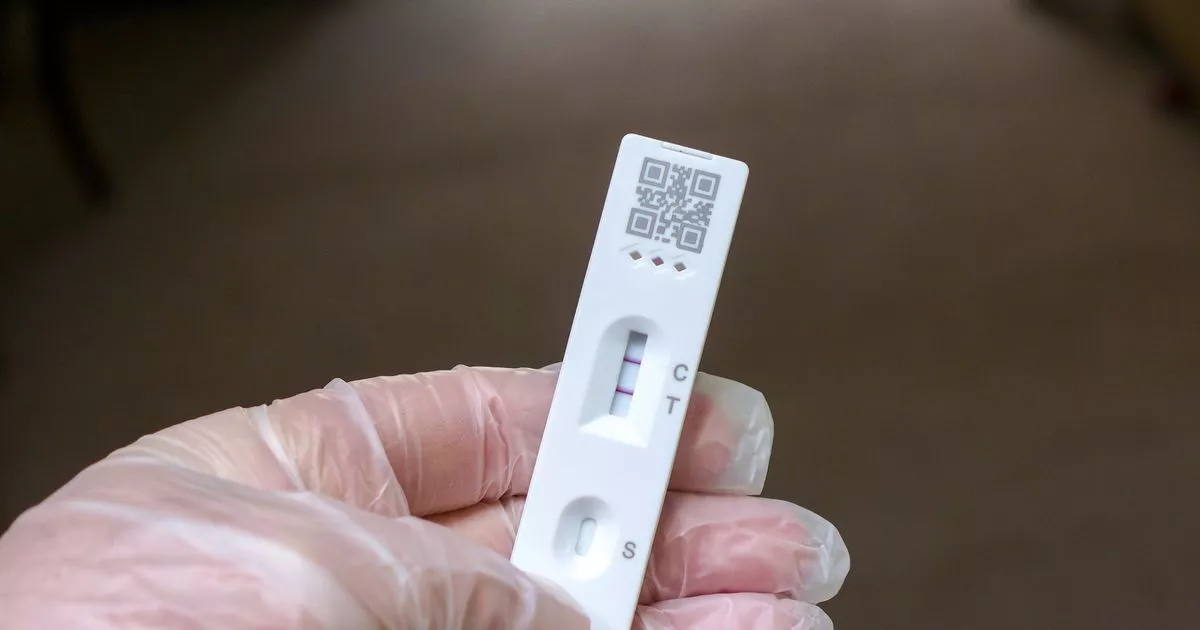It is currently the dominant strain in the UK The new Stratus Covid variant is now the dominant strain in England(Image: Getty Images)
The new Stratus Covid variant is now the dominant strain in England(Image: Getty Images)
The UK Health and Security Agency (UKHSA) has issued a fresh Covid warning as the dominant ‘Stratus’ variant continues to spread.
The latest data shows that the number of confirmed cases across the UK has risen by 22.2% across a seven-day period up to September 24 (the latest available figures), while there was a 5.1% rise in deaths in the space of a week.
Hospital admissions from the virus are also on the rise, with some 1,162 patients admitted to hospital with Covid in the week ending August 31 – a 15.6 per cent increase from the seven days before.
It comes as a new variant, dubbed ‘Stratus’, has become the dominant strain of the virus in the UK. Also known as XFG, the Stratus variant and its spin-offs, XFG.3 and XFG.3.1, account for around 75 per cent of Covid cases in England.
The new strain was declared a “variant under monitoring” by the World Health Organisation (WHO) on June 25 after it was first reported in January this year.
According to the WHO, a “variant under monitoring” needs prioritised attention due to characteristics that may pose an additional threat compared to other strains of the virus.
This variant brings with it some strange symptoms which the UKHSA is urging people to be aware of and look out for.
Generally, Covid symptoms can mirror those of typical respiratory conditions like the flu, including fever, coughing, sneezing or a running nose.
The most common initial symptom of Stratus is a hoarse or raspy voice, which can precede more traditional Covid symptoms. This more unusual early sign can easily be missed.
Medics have also noted a raft of other symptoms, including blocked noses, sore throats, digestive problems and extreme tiredness.
While there are no Covid restrictions in the UK, those with symptoms who cannot stay at home are urged by the UKHSA to do the following:
Wear a well-fitting face covering made with multiple layers, or a surgical face mask.Avoid crowded places such as public transport, large social gatherings, or anywhere that is enclosed or poorly ventilated.Take any exercise outdoors in places where you will not have close contact with other people.Cover your mouth and nose when you cough or sneeze; wash your hands frequently with soap and water for 20 seconds or use hand sanitiser after coughing, sneezing and blowing your nose and before you eat or handle food; avoid touching your face.
Dr Jamie Lopez Bernal, Consultant Epidemiologist at UKHSA, said: “Flu and COVID-19 levels are starting to slowly increase.
“While this is to be expected at this time of year, now is the time for people to come forward for their winter vaccines if they’re eligible, before we start to see more of these viruses in circulation in the winter months.”
Dr Lopez Bernal added: “Vaccination offers the best protection against flu, COVID-19 and RSV which is why it’s vital that eligible groups get vaccinated.”

